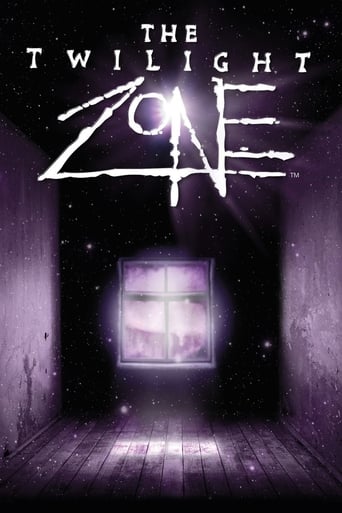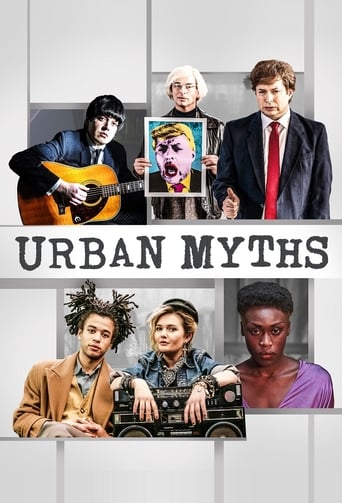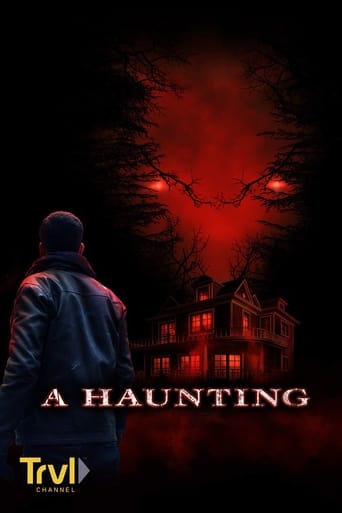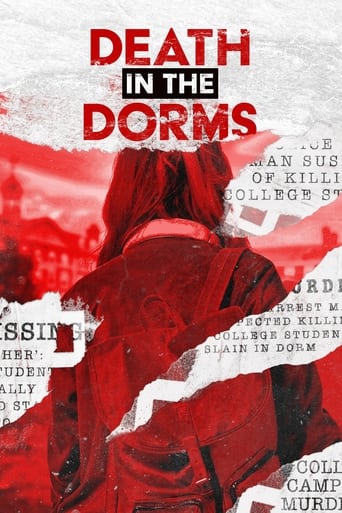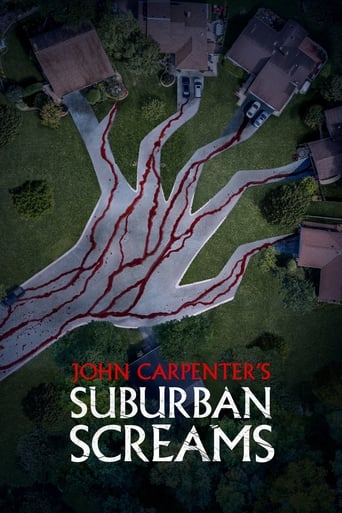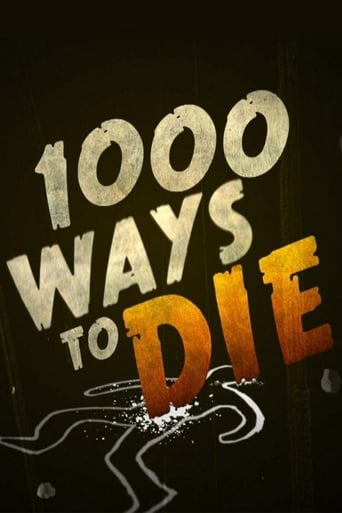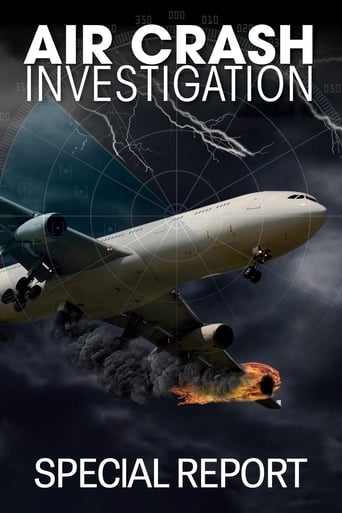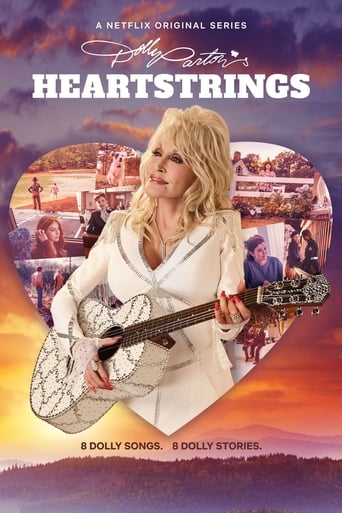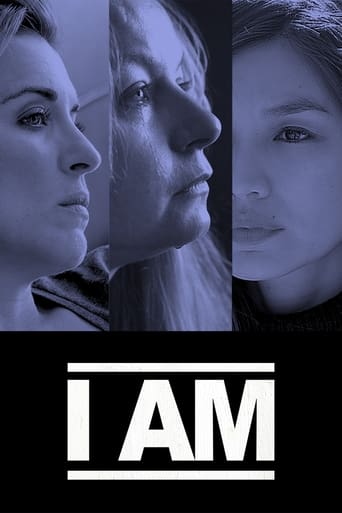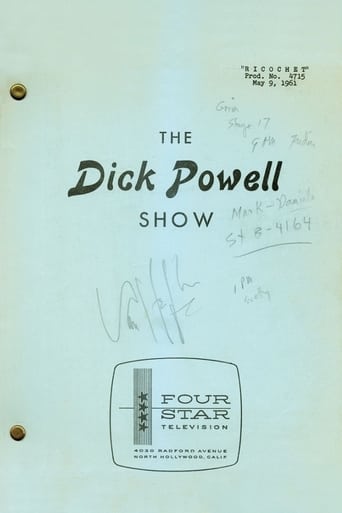With 30 Day Free Trial!
True Stories
1
Showcasing the best of international feature documentaries.
Watch Trailer
With 30 Day Free Trial!
True Stories Season 2010 Full Episode Guide
This moving film follows Vanessa and Maurice Melton in their search for their fortunes. The African American couple, with five children, seek to escape the economic downturn by leaving their hometown of Anchorage, Alaska, and setting out in search of new horizons. With less than $300 and nothing but their car to live in, they embark on a road journey which eventually leads to Las Vegas, where plentiful jobs and cheap housing made it America's fastest growing city. But as boom turns to bust, the Meltons face infidelity, drugs problems and poverty, all of which threaten to overwhelm them. Filmed by Jason Massot over four years, Road to Las Vegas is a dysfunctional love story about new beginnings, past ghosts and the infinite promise of the American West.
Laura Poitras' film is the story of two men whose lives were intimately caught up with the Al Qaeda leader Osama bin Laden and the very different paths those lives took after the American invasion of Iraq. Poitras originally intended the film to be about Guantanomo Bay prisoner Salim Hamdan, who was bin Laden's driver but then she met Abu Jandal, Hamdan's brother-in-law, bin Laden's bodyguard and a self-admitted recruiting officer for Al Qaeda. Jandal is a free man, working as a taxi driver in Yemen, now reformed (or so he says), who gained his freedom by naming names post 9/11. An engaging character, his on-screen presence is counterpointed by the absence of Hamdan, who is represented on screen by stills, letters to his family and his charismatic defence lawyer Lt Cmdr Brian Mizer, who is determined to gain his client a fair trial and his freedom. As Hamdan's trial continues, the film contrasts the two men's lives and beliefs in this intriguing interlocking drama.
Laura Fairrie's film records an historic moment in British politics through the microcosm of one east London constituency. Made over the course of a year, the film follows two very different political opponents as they battle towards the 2010 General Election. Long-standing Labour MP Margaret Hodge is a stalwart of the New Labour establishment. Running against her is Nick Griffin, the British National Party leader. Griffin is a controversial figure, with a conviction for inciting racial hatred, who nonetheless commands considerable support. As it chronicles the rise and fall of the far-right BNP, it gives a fascinating insight into the inner workings of the 'BNP family' and the working class disillusionment with the Labour party that fuelled the BNP campaign, offering an honest, moving and humorous portrait of a white working class community forced to face the changes brought by new immigrant populations.
James Toback's film of Mike Tyson's life, told in the ex-fighter's own words, finds the controversial ex-heavyweight champion ruefully reflecting on his past, which has included a failed marriage, a conviction for rape, drugs use and fights where he didn¿t bother training, happy just to pick up the cheque at the end. But he is also forthcoming about his difficult childhood and what the loss of trainer Cus D'Amato, who was also a father figure and mentor, meant to him. Toback has know Tyson for 20 years but this is no whitewash, more a film of a troubled man unburdening himself with an honesty a stranger could never elicit.
DIrector Ricki Stern and co-director Anne Sundberg's film is an intimate portrait of American comedian Joan Rivers. Shot over a year when Rivers both staged an autobiographical play in London as well as appearing on America's Celebrity Apprentice, it also follows her gruelling schedule of one-night gigs. But the film also gets beneath the self-admittedly surgically altered skin of the comedian. She recalls how, when she left The Carson Show for her own on Fox, Johnny Carson never spoke to her again. She alse reveals how she felt when her husband Edgar, the show's manager, who had been stealing from her, committed suicide. Between the laughs emerges a portrait of a driven, successful woman - but one who cannot bear to be idle, because to be so would lead to unwanted self-examination.
John Maringouin and Molly Lynch's film follows Slovenia's Martin Strel, swimmer extraordinaire. At first glance, Strel, 55, looks the opposite of the Olympic ideal, with his portly belly and distinctly unhealthy lifestyle but as a long distance swimmer, he has conquered the lengths of the Danube, Mississippi and Yangtze rivers. This film follows his attempt to swim the length of the Amazon, the world's longest river, to raise awareness of the depletion of the rain forests. But, rather like Herzog's Fitzcarraldo, the complexities of the adventure begin to spiral into chaos, with Strel's son and publicist Borut and navigator Matthew Mohlke caught up in Strel's grandiose plans.
Jerry Sladkowski's intriguing film about the search for a hastily buried treasure begins in September 1939. With the Germans about to invade Poland, Jack Atkin gathered together his Jewish family's valuables before burying them on his property in Lodz and fleeing to London. Seventy years later, his grandson, Mark Atkin, sets out on a voyage of discovery, not just back to Lodz but to Los Angeles, where distant cousins live and to London, where relatives might be able to explain why Jack returned to a war torn Europe, ending up in Riga prison camp. Finally in Lodz, he finds the family property intact. Are the buried valuables still there, will his relatives lay claim to a share and will Poland's ever-changing position on the restitution of Jewish property affect any discovery? As Mark digs into Polish soil, he also digs up a family history which reflects that of many European Jewish families during the war.
Kim Longinotto's critically acclaimed, Sundance-winning film follows the Bobbi Bears, a multiracial group of women based in Durban, South Africa who protect and shelter the child victims of sexual and physical abuse. Many of them have suffered such abuse themselves and they call themselves the rough aunties both because of their blue collar background and because of their tactics, making sure the perpetrators of the attacks are prosecuted in the face of bureaucratic indifference. But as well as following the women as they accompany police on night raids, it also follows their own personal stories, including the assault on one member and a tragic family loss to another. Their name comes from the toy bears they use to encourage their young victims to show the abuse they suffered, in the same way dolls are used in this country, by placing stickers to indicate where they were violated. Despite the tough subject matter, Rough Aunties is a positive, rewarding film.
With the help of Richard O'Barry, a former dolphin trainer who has since recanted and become the mammal's strongest ally, filmmaker Louie Pshihoyos sets out to expose the illicit slaughter of large numbers of dolphins at Taijia, a rural Japanese cove. The pair have to contend with bureaucratic obduracy, police surveillance and attacks by the fishermen. Forced to film undercover and underwater, they use Industrial Light and Magic's latest technology to capture the heartrending massacres. Psihoyos links events at Taija to wider concerns: the lucrative global aquarium industry, which needs trained dolphins; the impotent regulatory checks in place; and a whaling industry that is flexing its muscles again. And there is an ironic coda to the slaughter; the dolphin meat is relabelled as whale meat and is particularly popular in children's lunchboxes. The meat is high in poisonous mercury toxins.
Double Cannes-winner Emir Kusturica's films is a portrait of one of football's most extraordinary characters. Diego Maradona - reviled in England (the Hand of God), adored in Argentina, where he won the World Cup as a player and has (at the time of writing) managed his team to the last eight in South Africa. Kusturica enjoyed unlimited access to the man himself and traces his story from the humblest of beginnings to world domination, followed by his fall from grace through drug abuse and weight problems before rehabilitation and rebirth. The result is an astonishing, personal story that is cemented by the strong personal bond between Kusturica and Maradona.
Eric Bana's documentary, showing in the True Stories strand, tells of his love for the treasured 1974 Ford GT Falcon Coupe his father gave him - nicknamed The Beast. The film follows Bana's participation in the epic five-day Targa Tasmania Rally. When he spectacularly wrecks the car during the race, Bana turns to Jeremy Clarkson and to talk show psychologist Dr Phil for advice and ends up trying to unravel the particular and lifelong love that men can feel for their cars. It's a film for petrol heads and those intrigued by Bana's personality. And it also fits in a tour of Jay Leno's enormous vintage car collection.
Martin Taylor's revealing behind-the-scenes look at Australia's longest running and probably most politically incorrect beauty contest, Miss Nude Australia. Best Undressed is an offbeat portrait of suburban Australia that's somewhere between Strictly Come Dancing and Priscilla, Queen of the Desert; always entertaining, occasionally hilarious and sometimes a little tragic. It is an intimate insight into a group of young women and their families who share the same hopes and dreams as anyone and who are striving to be the very best at what they do but without any of the pretensions of more mainstream beauty pageants.
Ondi Timoner's Sundance-winning film is a portrait of Josh Harris, one of the internet's visionaries and the man behind a psychological experiment that prefigured Big Brother. He was the classic young dot-com millionaire. In the early 90s, he sold his video webcasting company for a rumoured $80m, and embarked on new experimental and controversial projects. `Quiet' was a gathering of 100 of the best and brightest minds into an enclosed utopia, whose every move would be streamed live on the Web 24/7 as they ate, lived and worked. But the strange interventions of Harris meant that it began to spiral frighteningly into sinister territory. When that project was shut down, he and his girlfriend began `We Live in Public', where every aspect of their lives were caught and transmitted live, including their breakup. By now, Harris had spent most of his fortune and initially moving to an apple farm in New York State, he finally decamped to Ethiopia, where he lives now.
This is the story of a unique football team. In recent years, albinos have been murdered in Tanzania, some as young as six months old, while others have been attacked with machetes and their limbs cut off while alive. Their body parts are used by witchdoctors in potions and remedies, and are sold for thousands of dollars, since they are believed to bring wealth and success in business. Albino United tells the story of a Tanzanian football team made up of albinos, a group of young men with the ambition to prove to the country that they are able to take part in everyday society, and more importantly, play football. Recently accepted into the Tanzanian 3rd Division, their journey will take them to the heart of the dangerous albino killing zones, playing in front of crowds, getting to see the World Cup, and even meeting Didier Drogba. But above all, this is an opportunity to show to huge crowds that attitudes towards people with albinism must change and the killings must stop.
Paul Downes, a successful businessman with bipolar disorder, suffers from manic highs followed by depressive lows. Film-maker Mark James follows his extraordinary journey as he searches for a wife, hiring a castle in Jamaica and inviting 12 Ukrainian women to join him in the hope of finding his soul mate
Andrew Thompson and Lucy Bailey's film in the True Stories strand tells of how one white farmer took on the Zimbabwe government and took Robert Mugabe himself to court. Mike Campbell ran a mango farm in Zimbabwe which was reallocated to a poor black family (in reality, the son of one of Mugabe's former ministers) under Mugabe's Land Reform Programme. But Campbell and his son-in-law Ben Freeth took their case to a tribunal of the Southern African Development Community, an international court in Namibia, arguing the eviction was based on racial discrimination, which is illegal in Zimbabwe. The case dragged on for over a year, during which Campbell and his family were intimidated by armed gangs, kidnapped and tortured to within an inch of their lives. This film is an intimate account of one family's bravery in the face of state brutality and whose fight for justice has implications for ordinary Zimbabweans who continue to suffer at the hands of Mugabe and his regime.
The incredible story of Pablo Escobar, the infamous boss of Colombia's Medellin drug cartel, told for the very first time by his son, Sebastian and his widow Maria Isabel Santos. In Nicolas Entel's film, showing in the True Stories strand, Sebastian tells of his extraordinary childhood, growing up with a father he loved but whom he knew to be Colombia's enemy number one. He tells of times of extraordinary luxury and extravagance, and other times on the run, and Sebastian and his widow open the family vaults to share their private and long hidden archives. He also meets with the sons of the late Colombian justice minister Rodrigo Lara Bonilla and the late presidential candidate Luis Carlos Galán, both killed on orders from Escobar after confronting his cocaine cartel. The film follows Sebastian as he tries to break the cycle of revenge and assassination by seeking reconciliation with the sons of his father's victims.
Erasing David is a 2009 dramatized documentary film from the United Kingdom. Stating that as of today the UK is "one of the three most intrusive surveillance states in the world, after China and Russia", director and performer David Bond tries to put the system to the test. After anonymously setting up private investigators Cerberus Investigations Limited to trace him, he tries to disappear.
In the light of the recent democratic elections in Afghanistan, The True Stories strand, which showcases the best international feature documentaries, presents a short season of programmes looking at the often unseen faces of war-torn Afghanistan. Vote Afghanistan! tells the story of the gripping and controversial Afghan Presidential election of 2009. With unique and unprecedented access, this political thriller observes the elections through the eyes of the leading challengers on their campaign trail, their supporters and the personal stories of the everyday Afghan voter as across the country brave people literally risk their lives to challenge President Karzai and to make it a free and fair election.
In the light of the recent democratic elections in Afghanistan, the True Stories strand presents a season of programmes looking at the often unseen faces of war-torn Afghanistan. The Dancing Boys of Afghanistan reveals a dark side of Afghan culture which has up to now remained hidden. A tradition known as Bacha Bazi (literally `boy play'), which was banned by the Taliban, is spreading through the country and exploiting the desperation of many poverty stricken children. Young boys are lured from the streets with the promise of a new life as singers and dancers for former warlords and businessman. But as well as being trained, they are traded for sexual favours and subjected to abuse, rape and sometimes even murder. Afghan journalist Najibullah Quraishi gains extraordinary access to they boys and their masters and throws light on a subject that no-one wants to talk about, exposing how the authorities charged with stopping the practice are complicit in it themselves.
Chris Atkins' hilarious but shocking True Stories documentary about the celebrity-obsessed media romps through the real reasons behind our addiction to fame, and pulls the rug out from the media corporations and moguls that deal it out. Atkins sells fake celebrity stories to the tabloids, which they publish without any checks, and secretly films red-top journalists discussing the purchase of celebrities' cosmetic surgery medical records. Deliberately targeting the sacred cows of the media industry, the film features jaw-dropping secret camera footage of Max Clifford boasting about the lengths to which he will go to protect his clients. It culminates in an exposé of how media manipulation usurped Live 8 for its own ends, with powerful testimony from leading humanitarian charities like Make Poverty History. It also investigates and calls into question some of the key claims that have been presented to the public. The film reveals the harmful effect a celebrity-saturated media is having on children, and how media corporations are responsible for a global epidemic of narcissism. Atkins uses stunts, animation, expert testimony and undercover reportage to create a darkly humorous and terrifying exposé of one of the most important issues of our time.
Former police officer Jesus Vissarion is the soul of Siberia. His 4,000 disciples follow a strict regime of no meat, no eggs, no milk, no fish, no alcohol, no smoking and very little money. Filmmaker George Carey touches down in the obscure Siberian outpost of Minusinsk, just in time to join in the fun and frolics at Vissarion's big festival, taking place in Sun City, the new Promised Land, roughly 200 miles north of Mongolia. George is approached by Vissarion's closest apostle, a former rock singer called Vadim Redkin, who says he can take him to meet the great man... A True Stories film.
After the success of The Yes Men, the New York political action co-operative return to embarrass and humiliate corporations in equal measure. Largely fronted by Andy Bichlbaum and Mike Bonnano, they use phony websites and business names to persuade presumably otherwise rational people to accept their ideas. Such as the 'Survivaball', presented as the latest terrorist survival product from Haliburton. It's a human sized beach ball 'suit' meant to protect the individual inside but if they fall over, they can't stand up again and would just roll around. At a conference for the security industry, not one expert questions its viability. Although the Yes Men's exploits are funny and illuminating, they do ask a deeper question - if they can fool all these powerful men (and it is largely men) who run America, in how many other and more frighteningly important ways are these people being conned?
Billy Corben's astonishing story, showing in the True Stories strand, tells of the sudden rush of cocaine into the then sleepy Miami in the 1970s and 1980s. Colombian drug lords and Cuban and American gangsters realised that America had developed a taste for the drug but the authorities were slow on reacting to the threat. There was profit for all with, initially, very little risk attached. The story is told through three key characters; Jon Roberts, who claims to have imported over $2-billion worth of cocaine, pilot Mickey Munday, who personally flew in some 10 tons and the chillingly attractive Jorge `Rivi' Ayala, enforcer and assassin for Colombian `grandmother' Griselda Blanco. With a score by Jan Hammer, this is the true story behind the films Scarface and Blow, when money and mobs ruled Miami.
Now showing in the True Stories strand, Content is described by Petit as, "an ambient 21st century road movie", a meditative essay inspired by the almost trancelike state the act of driving can bring. With the narrative provided by Hanns Zischler, the film is variously about memories of other journeys from Texas through to Poland, the impact of modern technology and the rise of the huge impersonal factory sheds which now line roads throughout the world.
This is not a film about what might happen, this is a film about what has happened. The collapse of the cod population saw the end of 40,000 jobs; the bluefin tuna is being hunted to extinction; it takes five kilos of anchovies to produce one fish farmed salmon. And while there are some positive signs, with Walmart and McDonalds both selling fish from sustainable sources, some outlets still sell endangered species. But the final chilling conclusion is that unless more radical steps are taken globally, including the reduction of overfishing, it will take just 50 years for the world's ocean's to be all fished out.
This 1975 documentary by Albert and David Maysles, showing in the True Stories strand, tells the true story of Edith 'Big Edie' Bouvier Beale and her daughter Edith 'Little Edie' Bouvier Beale, aunt and first cousin to Jacqueline Bouvier Kennedy Onassis. Although they lived in the select opulent suburb of East Hampton, New York, through a combination of failing finances and illnesses both physical and mental, they allowed the mansion to fall into decay until in 1972, the neighbours complained at the stench and animal infestation. The national press covered their plight and Jacqueline Onassis stepped in to assure their future. The Maysles became interested in their story and received permission to move in for two months, filming the pair every day. The product is a fascinating and affectionate portrait of two women who have become dependent only on each other but still retain a sense of wit and style throughout all their trials.
Corradino Durruti's film, showing in the True Stories strand, is a chilling insight into the 'Ndrangheta, the 'Cosa Nostra' of the Calabria region of Italy, told through the cat-and-mouse game in one small city between the local boss Toto Crea, the forces of law-and-order out to nail him and the corrupt officials who protect him. The 'Ndrangheta are just as fearsome and just as feared as their Sicilian brothers but being family based, rarely admitting non-blood members, are all the harder to infiltrate or divide. But in 2000, the people of the small city of Rizziconi had had enough and through a fierce anonymous letter writing campaign, managed to get the city council dissolved by the Italian president. In addition, the government appointed prosecutor Roberto Pennisi and Inspector Nico Morroni to look into the activities of the Crea family, an inquiry that was to take seven years before the truth was reached.
R J Cutler's documentary follows Anna Wintour, renowned editor of Vogue, as she prepares the September 2007 issue. Weighing in at a record 840 pages, it is also the magazine's most important issue, heralding the autumn fashions. With her trademark bob and omnipresent dark glasses, Wintour comes over as a woman who is a success because she knows exactly what the reader wants, as she supervises each and every page, aided and abetted by Grace Coddington, Vogue's creative director who acts as a foil to Wintour to produce a winning combination.
This moving yet humorous film in the True Stories strand from Mat Whitecross follows two refugee families from Burma over the course of a year that will change their lives completely. Forced from their homeland by the repressive military junta, they have lived in a Thai refugee camp for almost twenty years. A UN relocation scheme offers them the chance of a new life, but their new home, in the British city of Sheffield, will be different to everything they've ever known. With intimate access, Moving to Mars depicts their struggles with 21st century Britain.
Anders Østergaard's documentary, from the True Stories strand, captures the bravery of the young Burmese video journalists who, though risking torture and life in jail, live the essence of journalism as they insist on keeping up the flow of news from their closed country. Armed with small handycams, the Burma VJs stop at nothing to make their reportages; their material is smuggled out of the country and broadcast back into Burma via satellite and offered as free usage for international media. The whole world has witnessed single event clips made by the VJs, but for the very first time, their individual images have been put together with Østergaard's sparingly-used reconstruction to tell a riveting story which offers a unique insight into high-risk journalism and dissidence in a police state, while at the same time providing a thorough documentation of the historical and dramatic days of September 2007, when the Buddhist monks started marching.
Simon Chambers wants to find out if a large industrial complex run by the British mining company Vedanta in the Indian region of Orissa can help the local community flourish. But his attempts to hire local guides border on the ludicrous; they get lost, and then complain of leg pains to avoid taking him on tour. Even his chauffeur takes off. Then he realises why; although there there are hospitals, there are no doctors, wastewater has been leaking into the river and there are many other rumours from all sides. That's when Chamber realises that his guides are not incompetent - just fully aware they are risking quite a lot by accompanying an inquisitive foreigner...
The True Stories strand, which showcases the best international feature documentaries, continues with Yoav Shamir's controversial, personal exploration which asks, "What is anti-Semitism today?" Is it a real and continuous danger that requires eternal vigilance or a tactic used by right-wing Zionists to discredit and cow their critics? Among those he interviews are Abe Foxman, head of the Anti-Defamation League, who is adamant that anti-Semitism is rife and must be exposed; while Norman Finkelstein, author of The Holocaust Industry: The Exploitation of Jewish Suffering, claims that anti-Semitism is being used for political gain. Opinions differ and tempers flare but Shamir's directness and wry humour, as shown in his other films including Checkpoint, 5 Days and Flipping Out, elevate the mood as he tackles extremely difficult questions.
Amanda Knox is currently serving 26 years in an Italian jail for the murder of her flatmate, Meredith Kercher. This True Stories documentary asks: who is the real Amanda Knox - and was she really capable of murder?
Free Trial Channels
Seasons



























